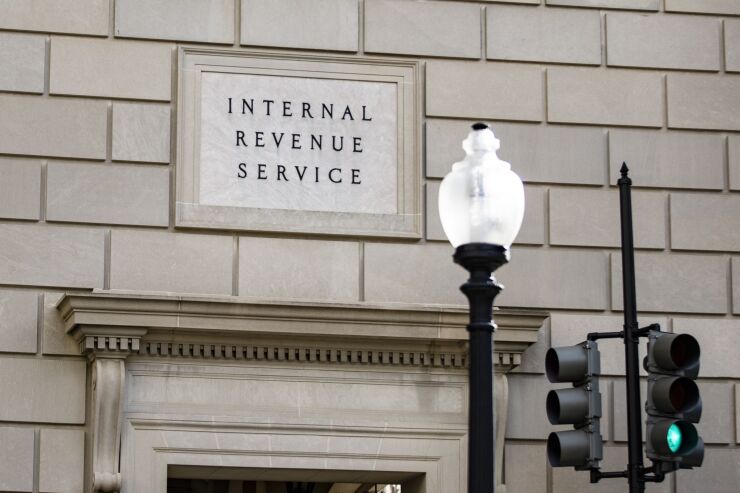The Internal Revenue Service issued guidance Friday saying a redemption of shares in a money market fund won't be treated as part of a wash sale, which would subject it to taxes.
The IRS noted that money market funds have historically tried to keep the prices at which their shares are distributed, redeemed and repurchased stable — usually at $1.00 — with only minimal fluctuations in the value of an MMF's portfolio on a per-share basis. Prior to amendments in 2014, Rule 2a-7 of the Investment Company Act of 1940 generally allowed a fund to compute its price per share by using either or both of the amortized cost method of valuation, and the penny-rounding method of pricing. Under the amortized cost method of valuation, a money market fund's net asset value per share was determined by valuing its portfolio securities at their acquisition cost, adjusted for amortization of premium or accretion of discount.

Under the penny-rounding method of pricing, a money market fund's NAV was rounded to the nearest 1% in computing the fund's share price, the IRS noted. These methods were intended to enable funds to maintain stable share prices under most circumstances. Final rules adopted by the SEC in 2014 generally bar the use of the amortized cost method of valuation and the use of the penny-rounding method of pricing, except by government and retail money market funds.
A money market fund that uses market factors to value its securities and uses basis point rounding to price its shares for purposes of distribution, redemption and repurchase (known as a floating-NAV MMF) has a share price that's likely to change frequently, but usually within a narrow range because of the limited types of investments that a fund may hold, according to the IRS.
The wash sale rules disallow a loss realized by a taxpayer on a sale or other disposition of shares of stock or securities within a period beginning 30 days before and ending 30 days after the date of the sale or disposition, if the taxpayer acquires or enters into a contract or option to acquire substantially identical stock or securities, unless the taxpayer is a dealer in stock or securities and the loss is sustained in a transaction made in the ordinary course of the business.
This revenue procedure expands the scope of Rev. Proc. 2014-45 in response to final rules adopted by the Securities and Exchange Commission on July 12, 2023, which amend Rule 2a-7.
The Treasury Department and the IRS issued the new revenue procedure Friday to reduce undue tax compliance burdens resulting from the 2023 amendments.
"Because of the constant value of shares in stable-NAV MMFs, the frequency with which many taxpayers continuously acquire and redeem shares in these MMFs, and the administrative and compliance burdens that would flow from applying Section 1091 to these transactions, it is in the interest of sound tax administration to extend to these shares the relief that Rev. Proc. 2014-45 already provides to shares in floating-NAV MMFs," said the revenue procedure. "Accordingly, the IRS will not treat as part of a wash sale a redemption of a share in any MMF."





